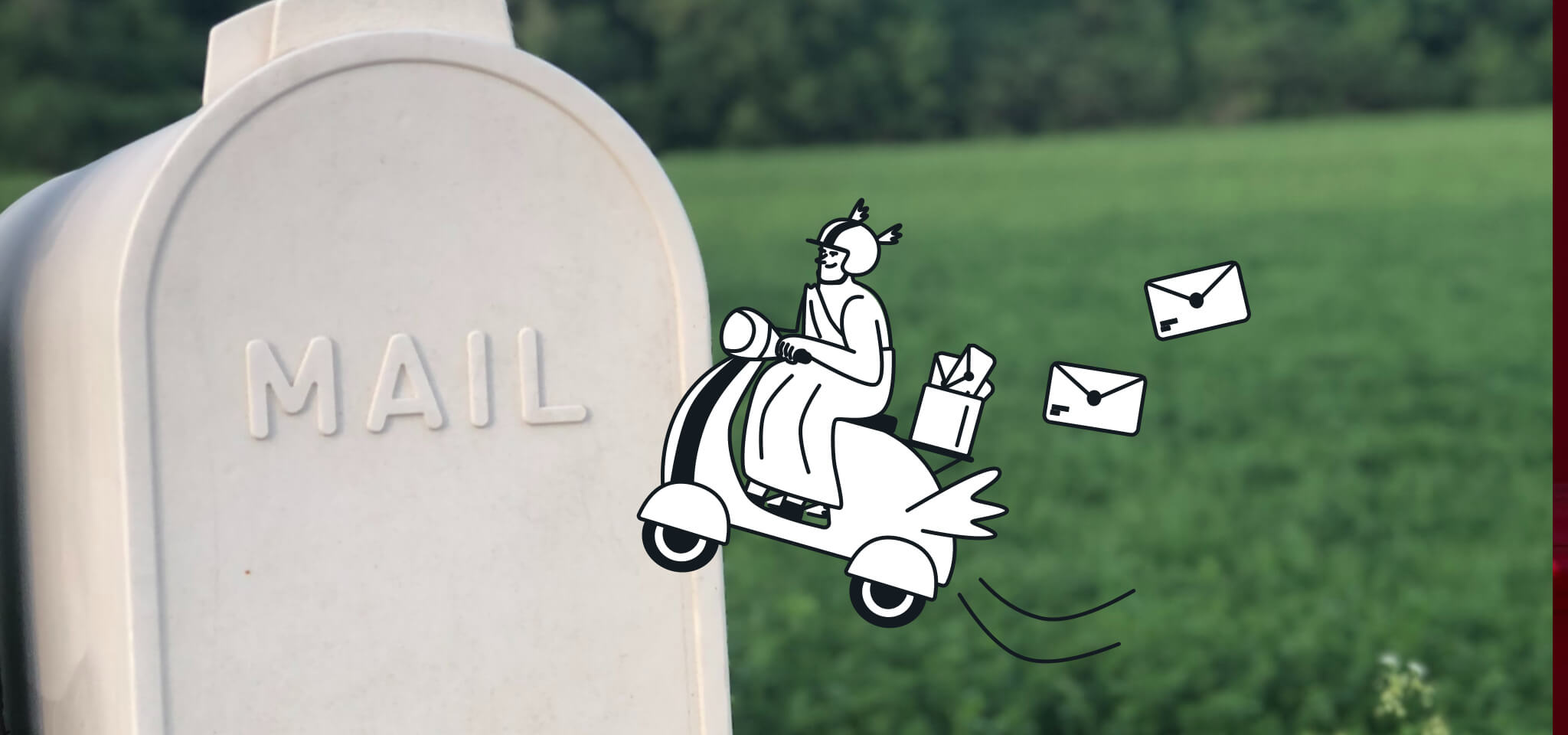Product
Dynamic email content for personalized marketing campaigns
Dynamic email content is a powerful way to engage customers with tailored messages that speak directly to their interests and needs. By creating personalized campaigns, businesses can build stronger relationships and stand out in today's crowded digital landscape.

PUBLISHED ON
How great are emails that are tailored just for you? That feeling is essential to help businesses stand out. In fact, 65% of email marketers say dynamic content is the most effective personalization tactic in their arsenal. Also, companies who customize experiences report seeing a 19% uplift in sales on average.
Now, you can go even further into personalization by dynamically displaying content based on the segments to which your contacts belong. This is an excellent alternative to creating a campaign per segment.
Table of content
1. Improved customer experience
2. Save your team time
3. Increase campaign engagement
Text
Visuals
Call to action (CTA)
Promo codes
Location
Purchase history
Climate
Membership
What is dynamic email content?
Dynamic email content refers to any email marketing content that adjusts and populates according to the recipient's information, from their demographics, spending habits, geographic location, and more. By using dynamic email content, digital marketers can be more specific with the content they send to individuals. They can personalize fonts, images, GIFs, calls-to-action (CTAs), and more in the emails they send.
Why put that kind of effort into email engagement, which is already proven to generate $57 per dollar spent on campaign marketing? Because today’s consumers are bombarded with branded emails, that abundance can cause recipients to ignore their inbox altogether. That’s why producing personalized email templates for your customers is so important. You’ll entice recipients and get them engaged with different content in real-time.
In this article, we’ll explore how dynamic email content and email personalization works, and see examples of how to use it effectively.
Benefits of dynamic email content
What makes dynamic email content so special? We think it has to do with simplicity. It easily enhances the customer experience by showing them products that can add value to their lives.
Improving the messaging that you use to inform potential customers about your goings-on can improve the success rate of your email marketing campaigns. So let’s explore the top three reasons why dynamic email content works so well.
1. Improved customer experience
With dynamic email content, the proof of the pudding is how much it steps up the customer experience.
Consumers often choose brands that offer personalized messaging about products or experience. Plus they can be convinced to make a purchase when they feel that a business understands their pain points.
It’s clear that the customer experience should be priority number one, and dynamic email content allows you to personalize your messaging, so each customer feels understood.
2. Save your team time
You’re aware that your team’s time is limited to focus on these efforts. Well, rest assured that this tactic can help you produce personalized experiences at scale. So put those typing fingers away because you won’t write from scratch each time you send a message to a subscriber on your email list.
With marketing automation, you can adjust one email you’ve written to appeal to the audience segment you’re targeting. With the dynamic email content running in the background, you can go back to focusing on your digital marketing strategy.
3. Increase campaign engagement
Email audiences are looking to engage with the best products out there. In fact, consumers would rather switch their spending to a different business if it offered strong and personalized messaging.
The fact is that customers want to interact with companies that they feel understand them. So use personalized, relevant content to drive up email engagement. Personalization leads to a higher email open rate, which means higher engagement rates and more chances to sell products to customers.
Not 100% convinced? When we mention dynamic content driving results, we’re talking about:
KPIs: By sending personalized content, you’re essentially sending more relevant information that suits your email list subscribers’ needs. When your audience feels like they’re part of a more amicable relationship with the businesses they frequent, they trust those businesses. Relationships such as these will likely lead to higher conversion rates.
User experience: Premium content is more enjoyable and relevant, and when that’s what you’re sending, your audience’s experience with your brand will be better. As we mentioned previously, today’s consumer is inundated with branded emails, so yours should go above and beyond to exceed customer expectations.
Relevancy: The more effective your customized content is, the more personal it is to the needs of your audience. Specificity yields relevancy, which means more useful content for your email subscribers.
Types of dynamic email content
The beauty of dynamic email content is that you can tailor it to suit your recipients’ needs. You can execute on content full of ways to provide value with exclusive offerings, push leads to a landing page, further subscription, or upselling. Now let’s get into our three favorite types of dynamic email content, and evaluate how they work. You get to decide which ones to implement as part of your email marketing strategy.
Text
Dynamic email marketing tactics make it easy to customize and repurpose your messaging. It can be perfectly designed for each of your audience segments. Unsurprisingly, dynamic text is incredibly user-friendly, and it’s often widely used by email marketers who want to dip their toes into the dynamic email content game. Customizable text can mean anything from paragraphs to reworked subject lines.
Visuals
Brands and businesses often implement visual interest into how they brand their marketing content. After all, branded emails aren’t only words on a blank page, right?
We encourage you to get creative about using images, videos, and GIFs, to contribute to your brand’s voice over email. Different audience segments will resonate favorably with these visible elements, which can help drive up those KPIs and get the results you’re looking for.
Call to action (CTA)
A conspicuously placed CTA button can make all the difference. While we understand the impulse to humbly place this tool, the results generated by a perfectly-placed CTA are undeniable. When users can see and properly engage with your CTA, they barely need to be encouraged to take action. So consider how your audience segments will respond to the positioning and look of your CTA. Your click-through rate (CTR) will become supercharged in no time.
5 examples of what you can do with dynamic sections
You can personalize content and sections for unlimited segments. Here are some use cases to help you visualize how you can use this dynamic sections.
Promo codes
You can create a section with a promo code and decide to display it only to contacts on your loyalty program. Other regular customers won’t see it.

Location
SaaStr, one of the biggest tech conferences in the United States, has been scheduled as an in-person event in 2022. To spread the word to their audience, they divided their marketing email into dynamic modules to promote the event and display the sections to the segment of their contacts living in different parts of the United States.
Their messaging is succinct and direct, without any overzealous messaging interfering with its clarity. It also features interactive components such as video and integrated GIFs.

Purchase history
An online pharmacy called Chemist Warehouse uses dynamic email content to put forth an email that nudges its customers to reorder their products. As you can see, their email content includes both images and text of the product based on their purchase history. The business takes full advantage of its upselling opportunity by including peripheral, related products that customers might consider purchasing along with their reorder.
Chemist Warehouse even uses a prominent CTA that encourages pre-orders on products their audience might run out of soon.

Climate
Sports equipment company Brooks uses personalization to send content that relates to different weather and climates. They do this by using images that featuring models jogging in hot or cold weather, depending on what each specific audience member currently faces.
Brooks also generates text and CTA buttons that work for these different climates. With these different tactics, it’s no wonder how Brooks customers can imagine themselves in these different scenarios, and using Brooks products to meet their athletic goals.

Membership
Conservation organization Rocky Mountain Elk Foundation (RMEF) uses dynamic email content strategies to target individuals with messaging related to their membership status. They’ll send non-members a CTA to become one, including content that outlines specifics like fees. On the other hand, members receive content that respectfully prompts them to donate to the cause.
By using automation, the team over at RMEF saves time while still using marketing email methods effectively to meet all of their goals.

Wrapping up
There are many examples of how different businesses use dynamic email content to tantalize recipients by providing value through mutually beneficial interactions. The barrier to entry for these strategies, namely time, has virtually disappeared through automation.
There’s no excuse for your team not to use these tools. Build upon the already existing relationship you share with your email subscribers – go out there and use dynamic email content to optimize revenue opportunities for your business.








